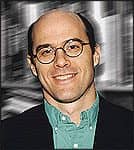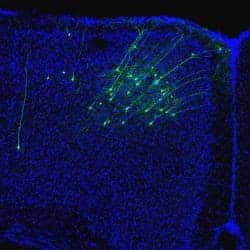
|
Mark Twain wrote of the Fourth of July: “Statistics show that we lose more fools on this day than in all the other days of the year put together. This proves … that one Fourth of July per year is now inadequate, the country has grown so.” Maybe we could follow this reasoning to produce more months of May so that Better Hearing and Speech Month (BHSM) would last longer. From casual observation, the message of hearing health care was greatly amplified during May. I saw far more newspaper and magazine ads, television spots, and Web articles than ever before.
Additionally, the Better Hearing Institute’s Hearing Aid Tax Credit Web site at www.hearingaidtaxcredit.org yielded over 4,000 letters to Congress as part of BHI’s grassroots campaign to spur passage of the federal tax credit that would provide up to $500 per hearing aid for Baby Boomers, seniors, and parents of children with hearing loss. Passage of HR 2329 and S 1410 could assist up to 1.2 million children and 11.5 million Americans ages 55 and above in treating their hearing loss.
Do your part by visiting www.hearingaidtaxcredit.org and asking your legislators to sign onto the bill.
Supplements: Solid science or snake oil? While walking around the American Academy of Audiology’s AudiologyNOW! convention with a friend (who will go unnamed), we passed an exhibit booth that offered a dietary supplement for hearing health. “That stuff’s snake oil! They’re selling snake oil!” he crowed incredulously. My friend is intelligent and fairly open minded, so I asked what led him to this conclusion. Essentially, his response boiled down to a belief that, under no normal circumstances, could a supplement substantially change the way a person hears or is otherwise affected by a hearing disorder.
Well, wait a minute. There have been many studies that link overall health to hearing function, and vice versa. HR has published articles on how physical activity can improve hearing, possibly by improving the vascular system and blood flow to hearing-related structures (eg, see the article by Helaine Alessio, PhD, and Kathleen Hutchinson, PhD, in the April 2004 HR) or even enhancing brain plasticity by facilitating neurogenerative, neuroadaptive, and neuroprotective processes. In contrast, it appears that some activities (eg, smoking) or some food products (eg, salt) can place a person at greater risk for hearing disorders. So why can’t dietary supplements have an impact on hearing health?
On the issue of antioxidants, there are some very intriguing studies that suggest a “hearing pill” might aid in hair cell preservation and rescue. At the 2000 ADA convention, Richard Kopke, MD, detailed research on the protection and restoration of inner ear hair cells, as well as its implications for regeneration strategies. For the last decade, I’ve interviewed and spoken in depth with several scientist who, at least for a portion of their research, have analyzed the deleterious effects of free radicals. One thing that I find intriguing is that, in most cases, these same scientists use antioxidant supplements themselves. Why? Because antioxidants sequester free radicals, and free radicals are implicated in a number of dysfunctions ranging from Alzheimer’s disease, to cancer, to the aging process itself. However, in one interview (October 2004 HR), Edwin Rubel, PhD, of the Virginia Merrill Bloedel Research Center was skeptical of the ability of supplements to deliver a measurable difference over the full spectrum of hair cell loss. “They might give a hair cell a little help when it’s right on the edge [of initiating apoptosis or cell death],” said Rubel. “But we’ve known for 20-30 years that antioxidants can protect cells… What you’re doing with antioxidants is eliminating free radical production. In my view, this is probably not going to be a major mode of therapeutic intervention.”
In short, I think my friend’s characterization of these products as “snake oil” is more probably a result of the terrible reputation that the dietary supplement industry is saddled with. Echoing Dr Rubel’s comment, the key question is whether the evidence indicates that hearing-related supplements make enough of a difference that a hearing care professional should recommend them. And, if so, then should the products be offered to specific high-risk populations (ie, a question of “to whom and how much”) or to the majority of patients? In this edition of HR, Kedar Prasad, PhD, and colleagues present the rationale behind using their company’s supplements in conjunction with standard prevention and treatment therapies. Another article scheduled later this year will take on related topics.
Karl Storm
Editor-In-Chief





